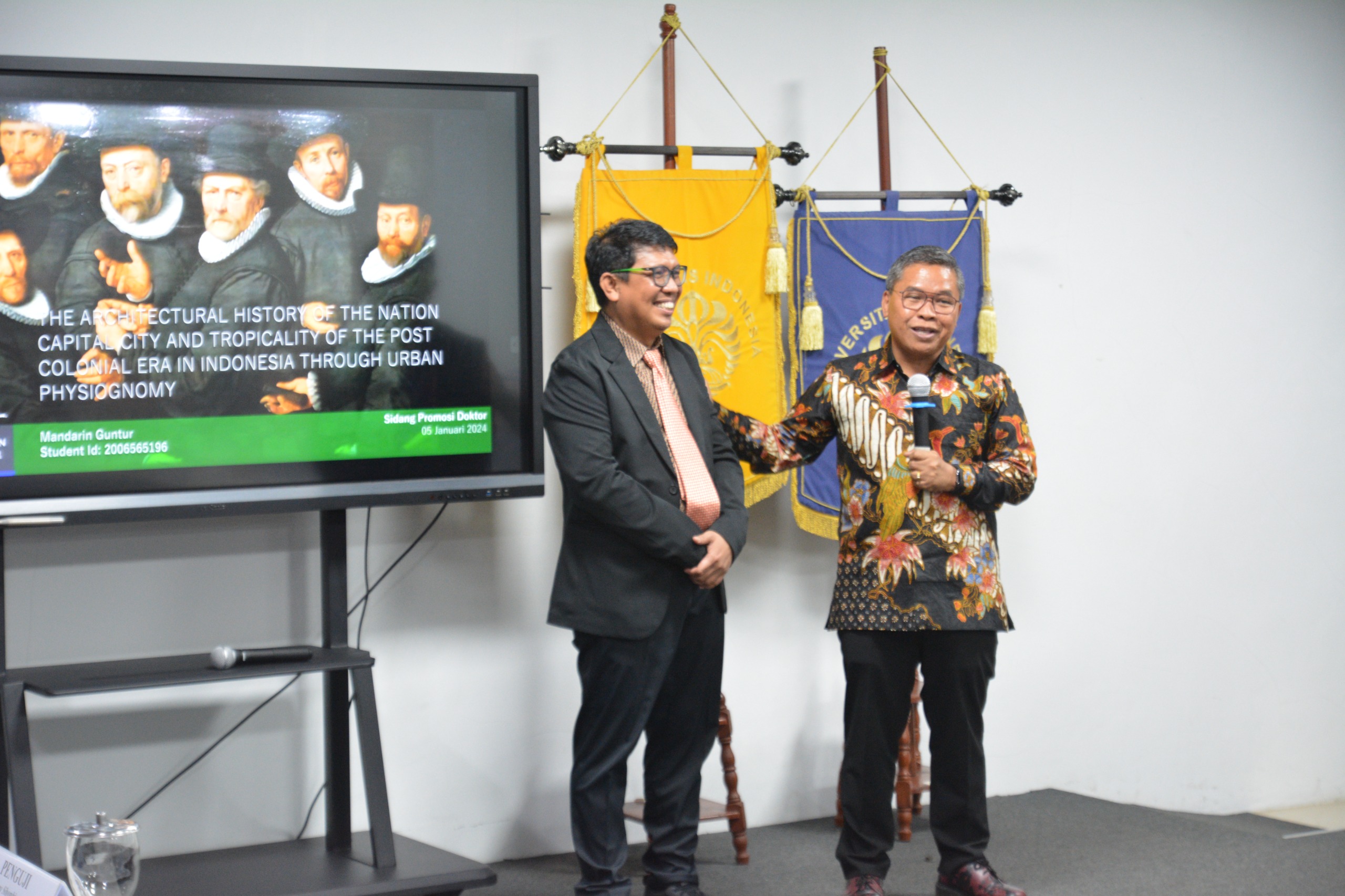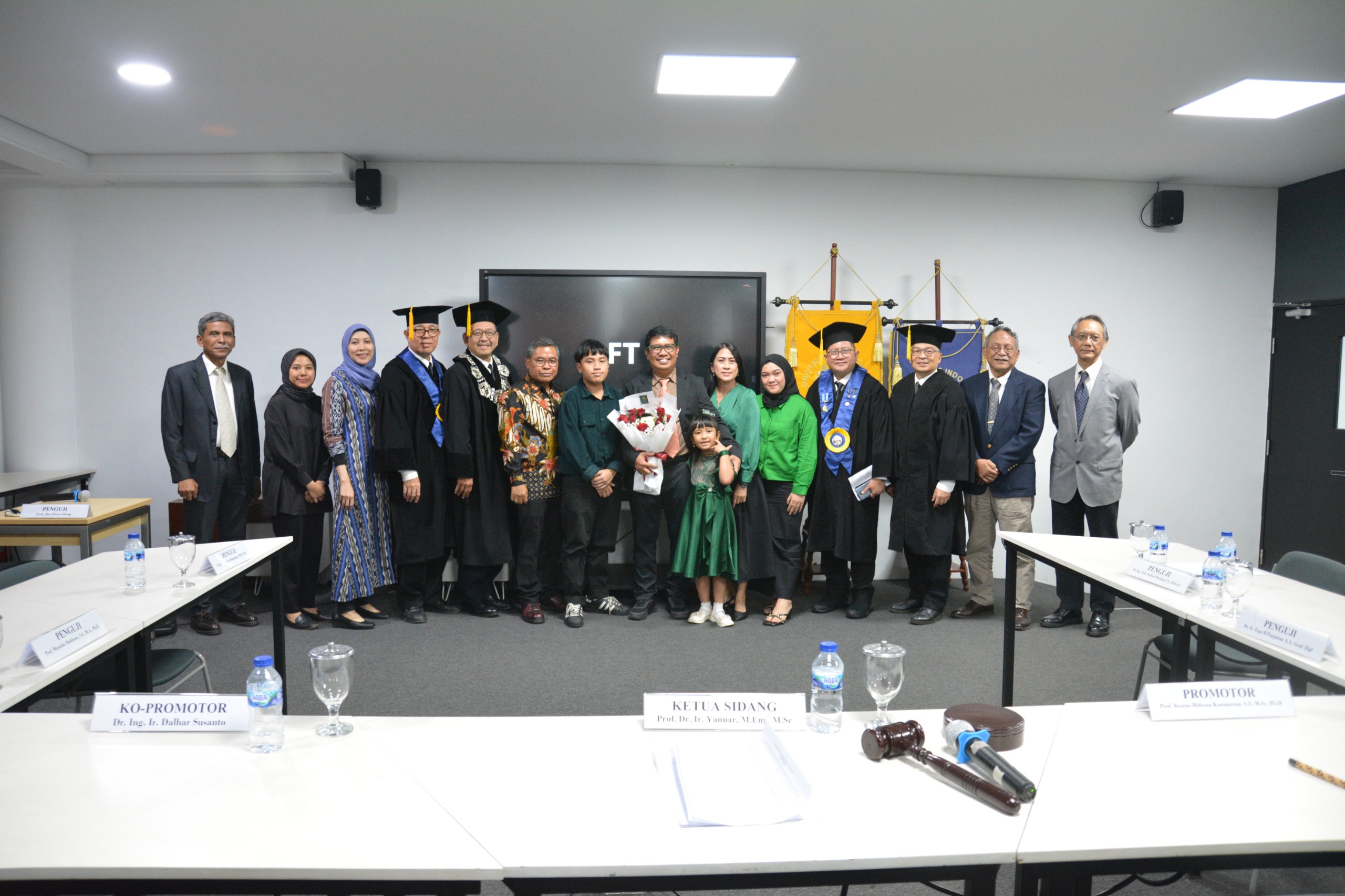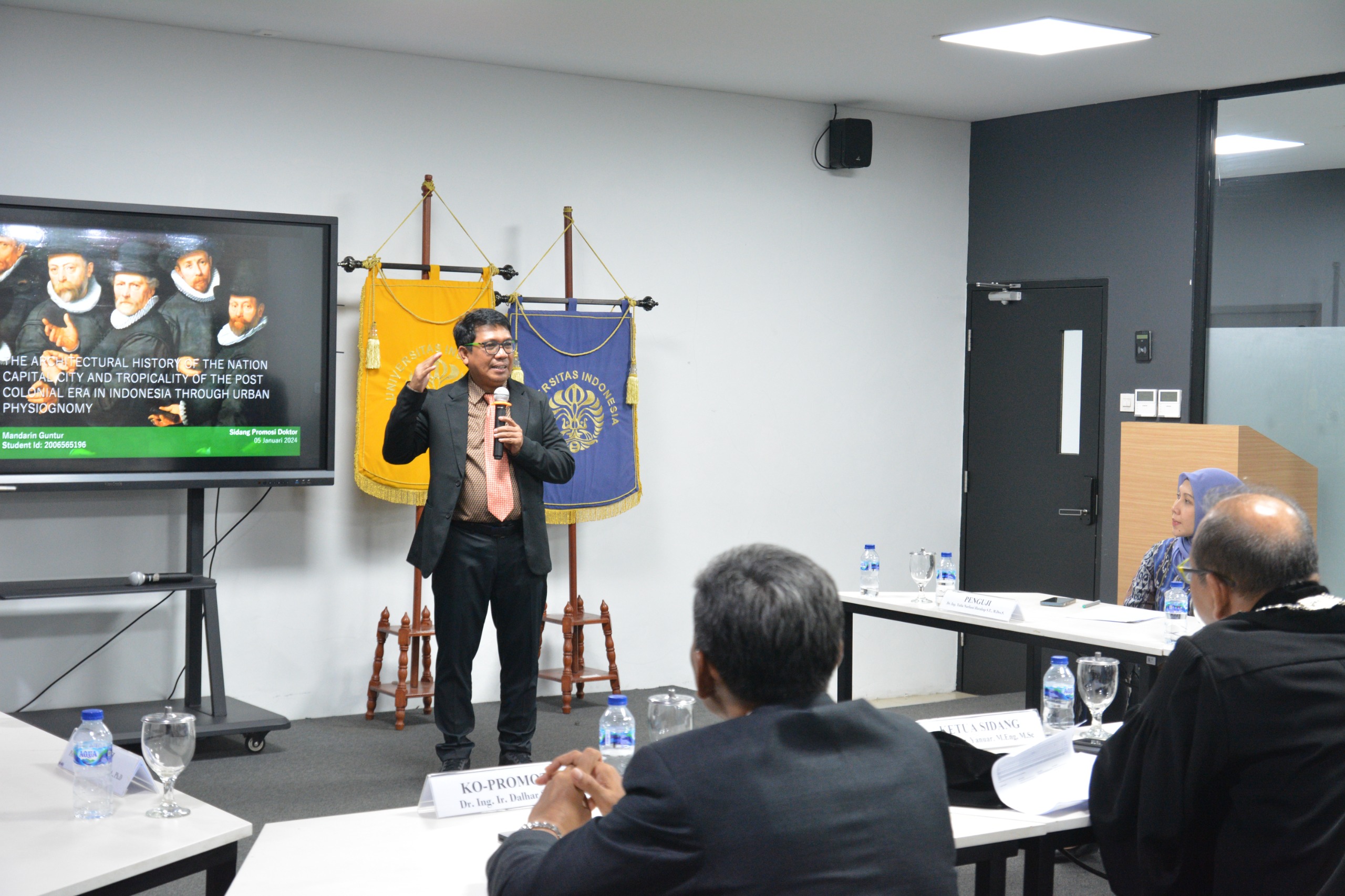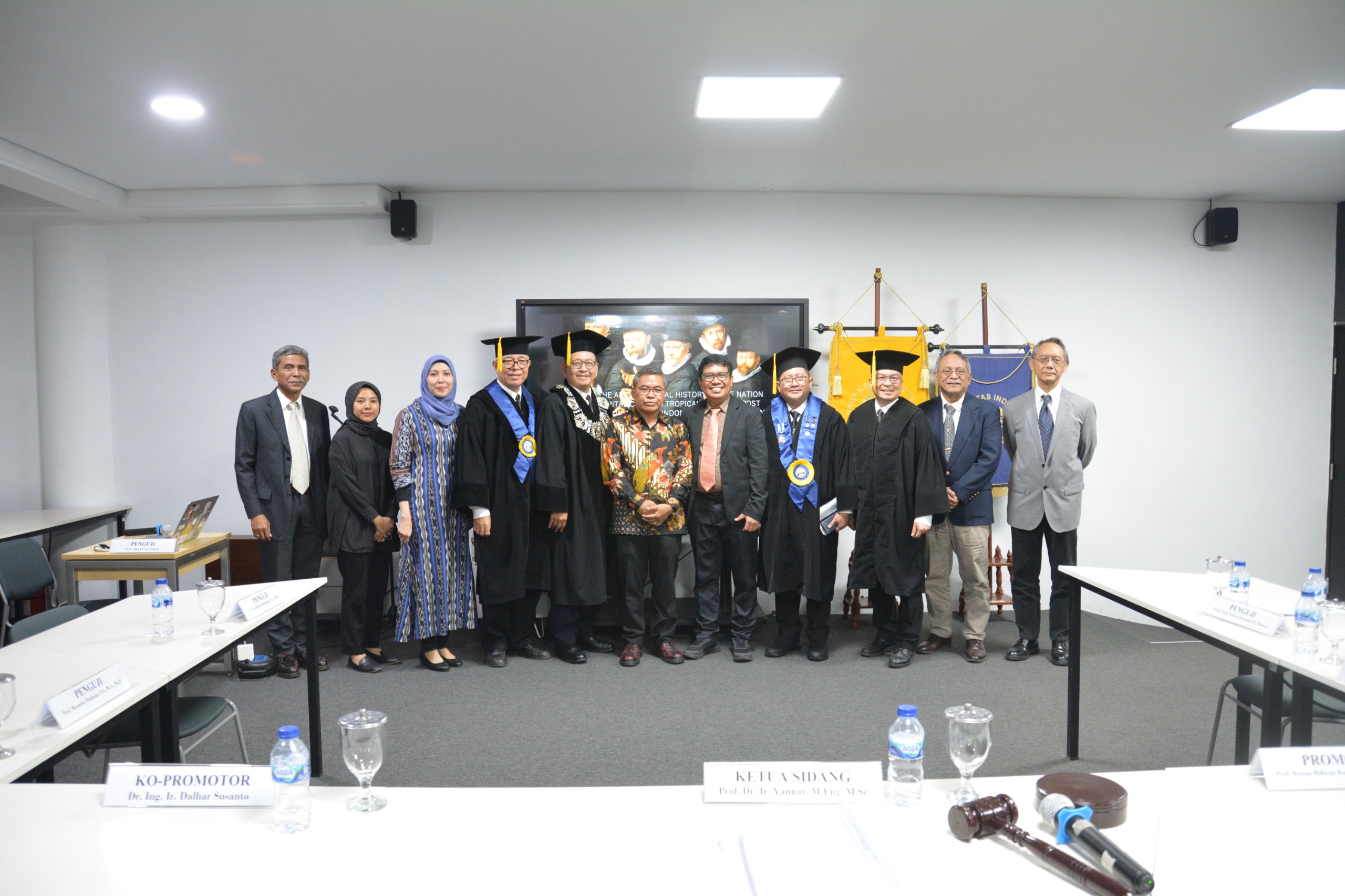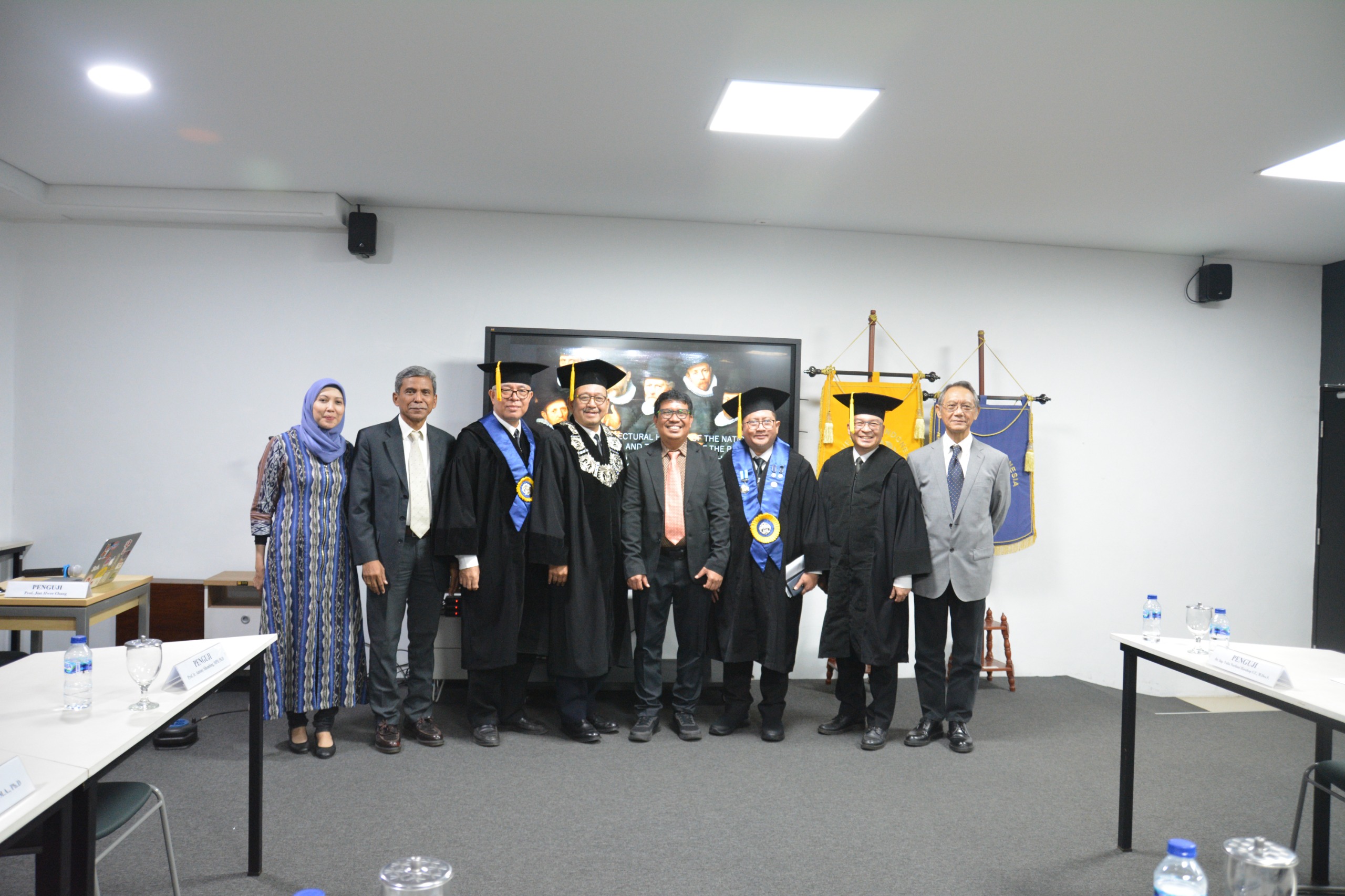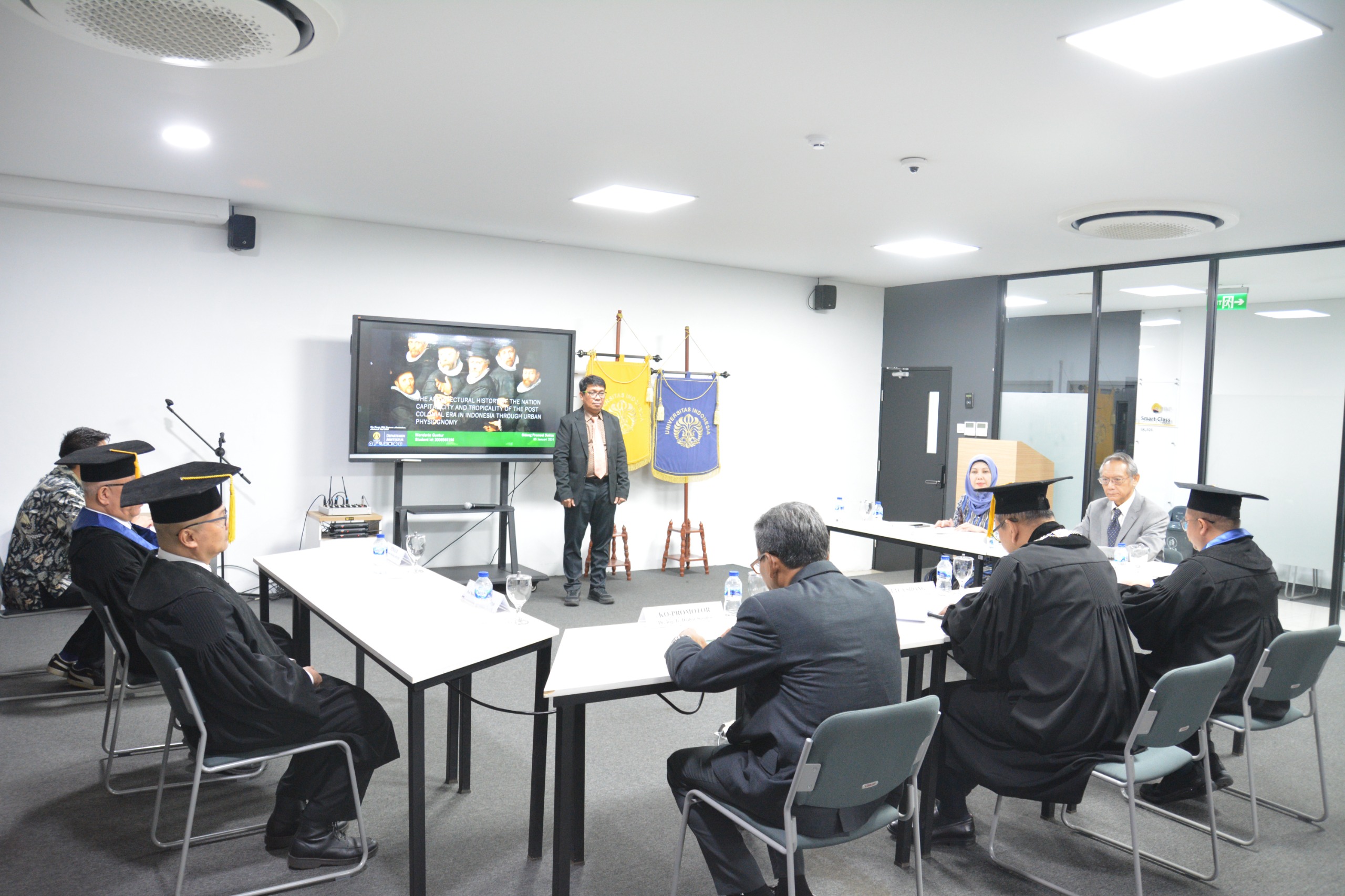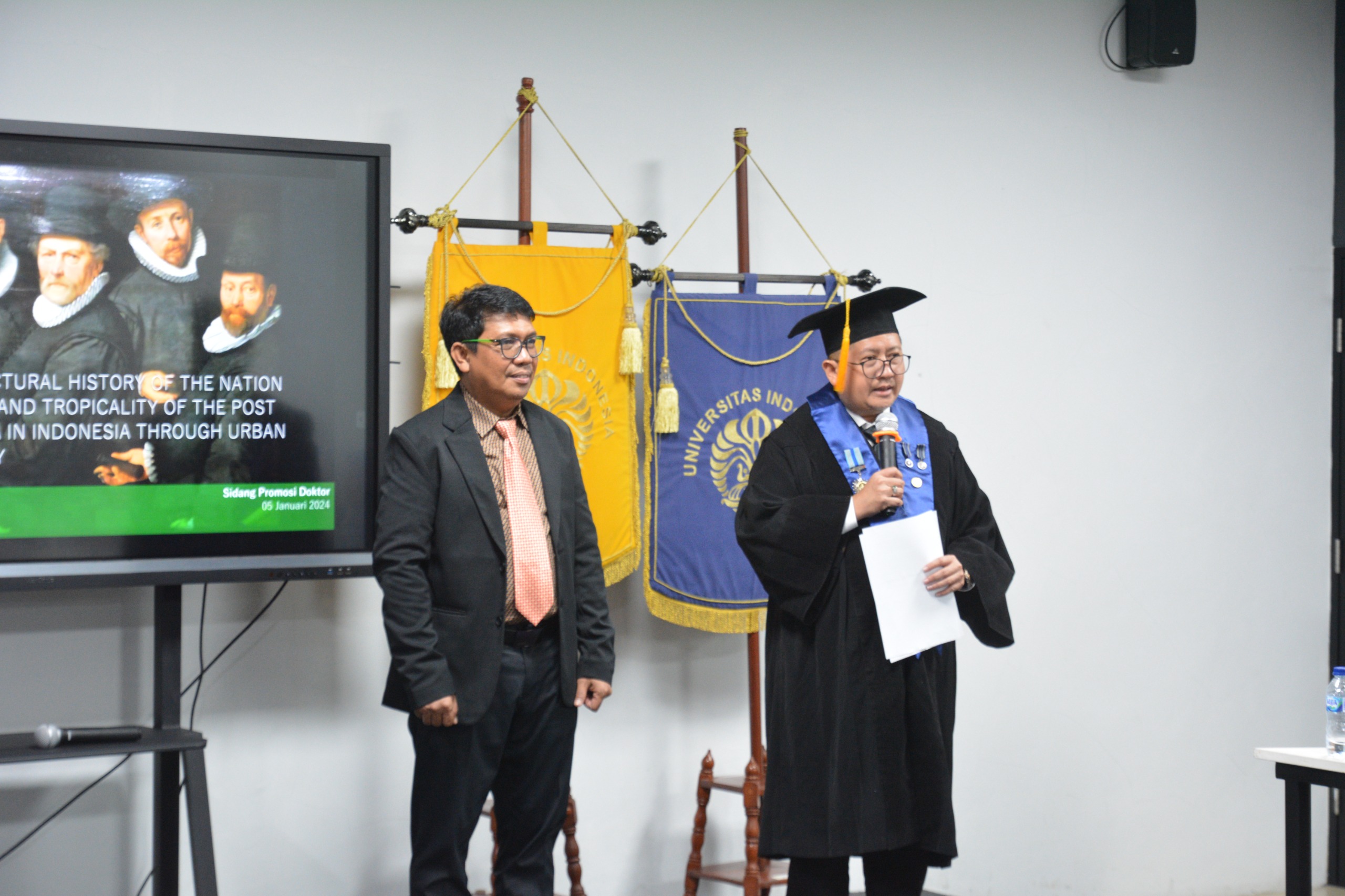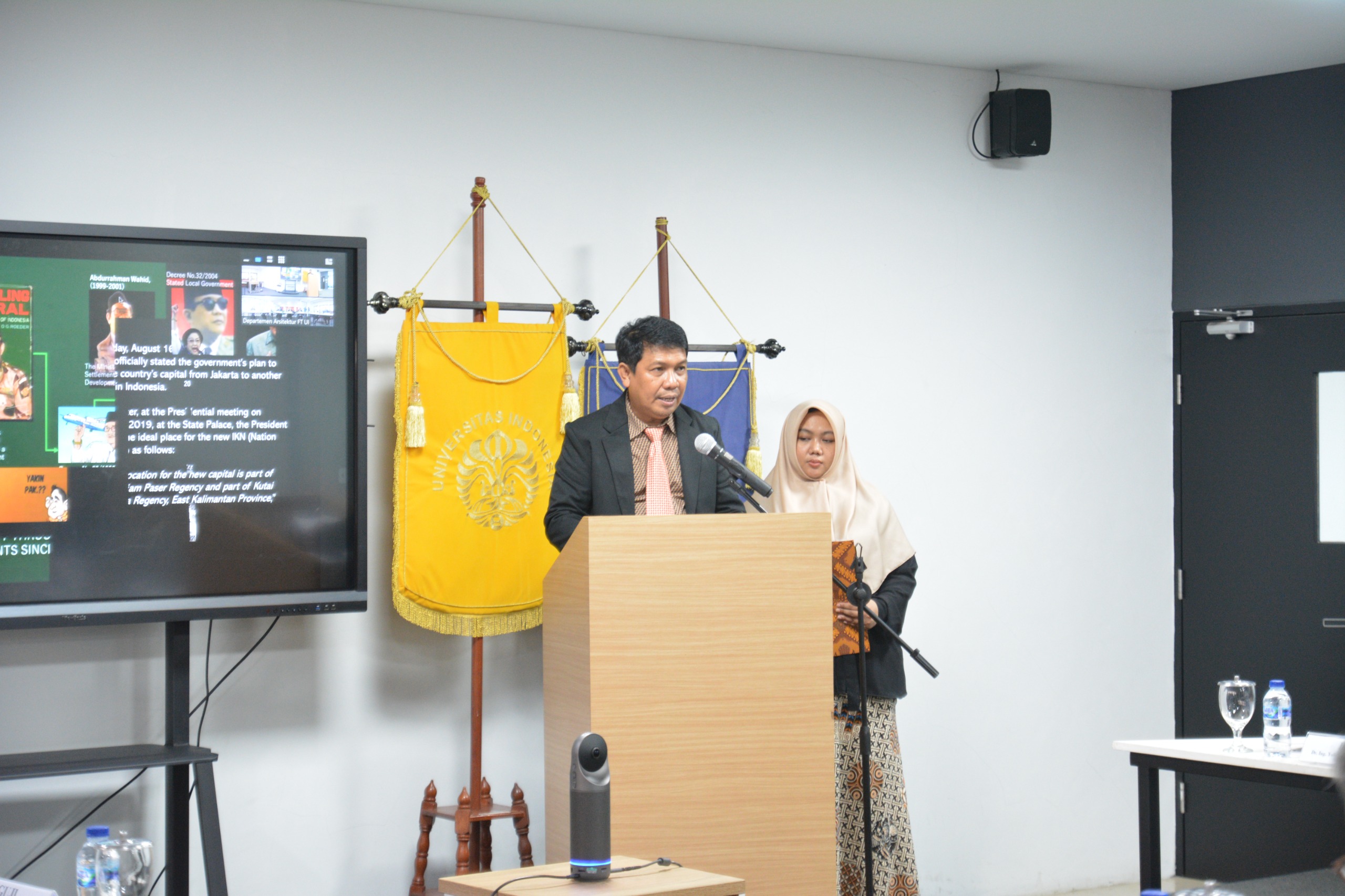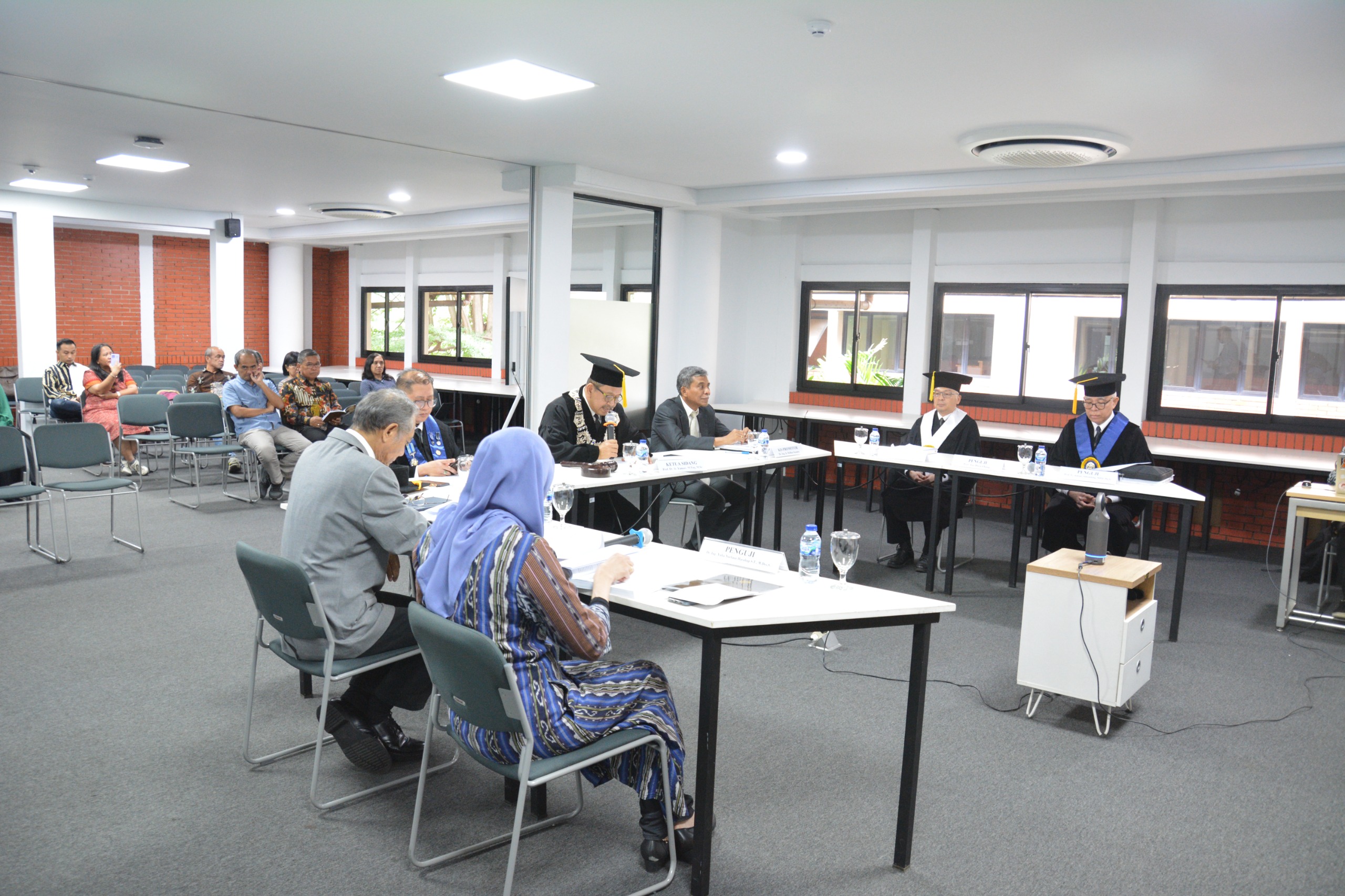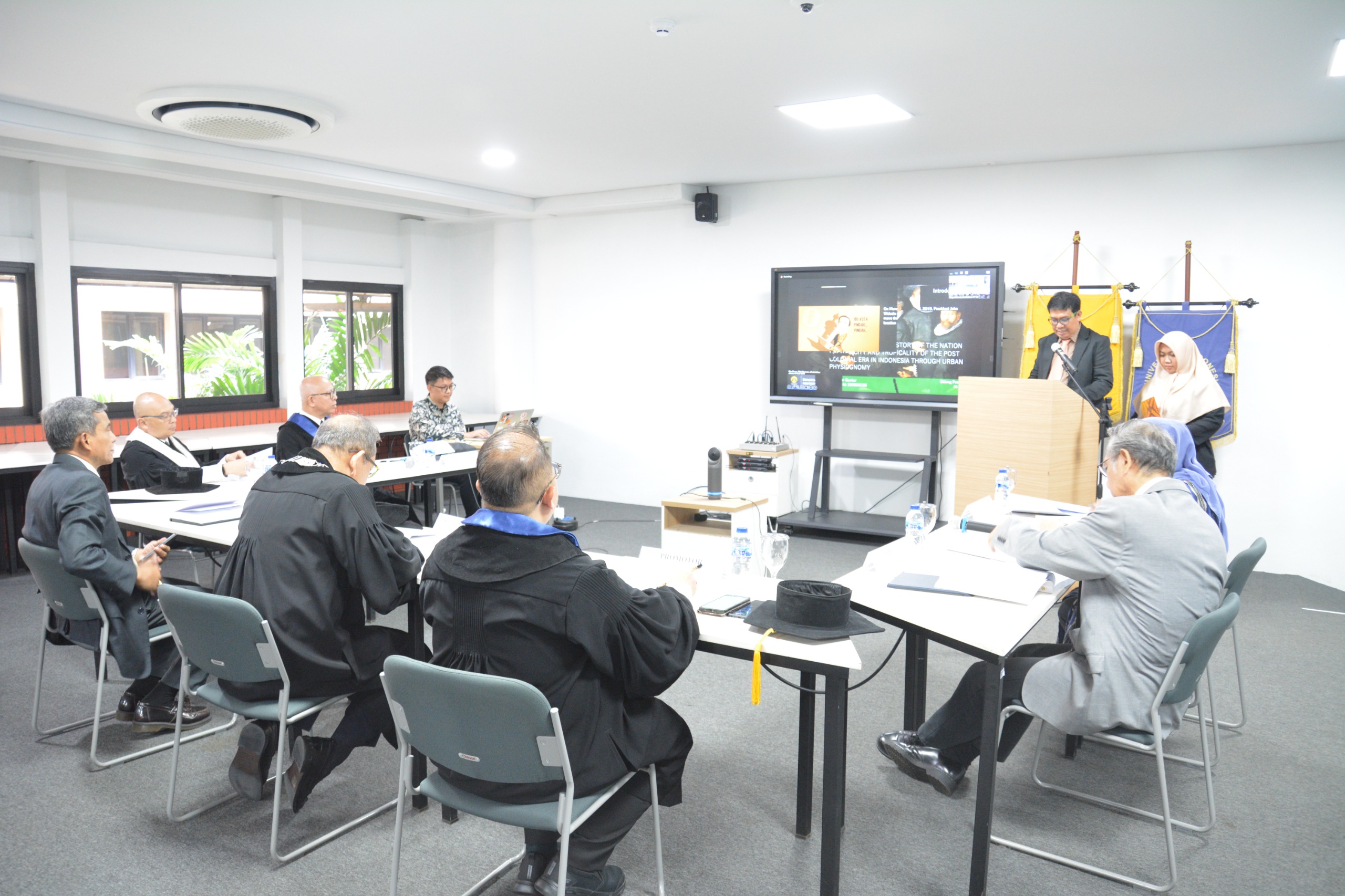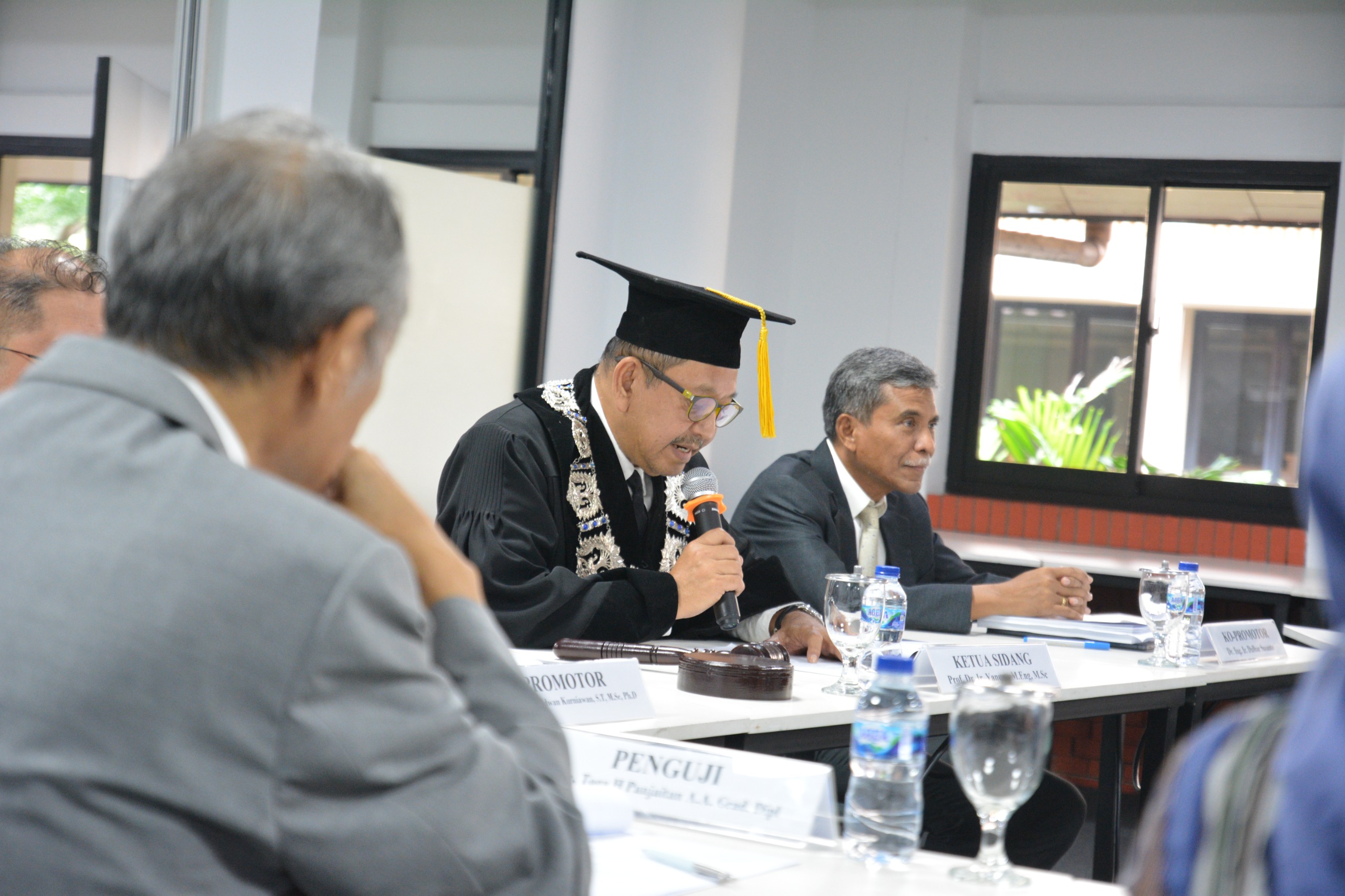The evaluation of the physical character of a city, whether referring to its vision or decisions made or unmade, is often termed physiognomy. This assessment encompasses both physical and non-physical aspects that also influence its transformations. This research was undertaken by Mandarin Guntur in his doctoral dissertation in the Architecture Doctoral Program at the Faculty of Engineering, Universitas Indonesia (FTUI), titled “The Architectural History of The Nation’s Capital City and Tropicality of The Post-Colonial Era in Indonesia through Urban Physiognomy.”
The dissertation was presented at the FTUI Doctoral Promotion session held on Friday (5/1) at the Smart Classroom, FTUI GK Building. In this dissertation, Mandarin Guntur attempts to empirically uncover the physiognomic aspects of the nation’s leaders in the plans for the relocation and development of the National Capital (IKN) in post-colonial Indonesia. He explores the extent to which physiognomy plays a role in the articulation of tropicality in the architectural history of the IKN city.
“The plans to relocate the National Capital (IKN) of the Republic of Indonesia did not occur only once. During the leadership of Soekarno, Soeharto, and Susilo Bambang Yudhoyono, all three had plans to move the IKN out of Jakarta. However, these plans failed to materialize for various reasons, including political instability, severe financial conditions, conflicts with neighbouring countries, political and economic reforms, and intense political dynamics,” explained Mandarin Guntur.
In the context of urban architecture, the birth of a place signifies a process of change, marking the end of an old city identity and giving rise to a new one. This transformative process involves various aspects such as history, social factors, politics, economics, and more. In the political context, it involves the power of those in authority. Decisions made by those in power are based on a vision of the future and the ability to plan and implement that vision.
In this doctoral promotion session, Drs. Alue Dohong, M.Sc, Ph.D., Deputy Minister of Environment and Forestry, was also present. In his closing remarks, he stated, “One thing that caught my attention is the presentation of this dissertation related to IKN. This is something new that may impact the development of IKN, which has the vision of a smart forest and sustainable city.”
FTUI Dean, Prof. Dr. Heri Hermansyah, S.T., M.Eng., IPU, stated, “This research provides valuable insights into how political decisions and policies regarding the relocation of IKN during different leaderships are reflected in the changes in the city’s physical character. Through physiognomic analysis, this dissertation opens up a profound understanding of the political, economic, and social dynamics that shape the new face of the National Capital. The unfulfilled past decisions to relocate IKN illustrate the complexity of challenges in realizing the vision of the future.”
Through this dissertation, Mandarin Guntur successfully obtained the title of Doctor with a “Very Satisfactory” predicate. He is the 21st Doctorate graduate from the Department of Architecture and the 526th Doctorate graduate from the Faculty of Engineering, Universitas Indonesia. The doctoral promotion session was chaired by Prof. Dr. Ir. Yanuar, M.Eng., M.Sc., with the Promoter, Prof. Kemas Ridwan Kurniawan, S.T., M.Sc., Ph.D., and Co-Promoter, Dr.Ing. Ir. Dalhar Susanto. The Examination Committee consisted of Prof. Ir. Antony Sihombing, MPD, Ph.D., Prof Manneke Budiman, S.S., M.A., Ph.D., Dr. Ing Yulia Nurliani Harahap, S.T., M.Des.S., Dr. Ir. Toga H. Panjaitan A.A. Grad. Dipl., and Prof Jiat Hwee Chang, who attended virtually.
***
Public Communication Office
Faculty of Engineering, Universitas Indonesia

